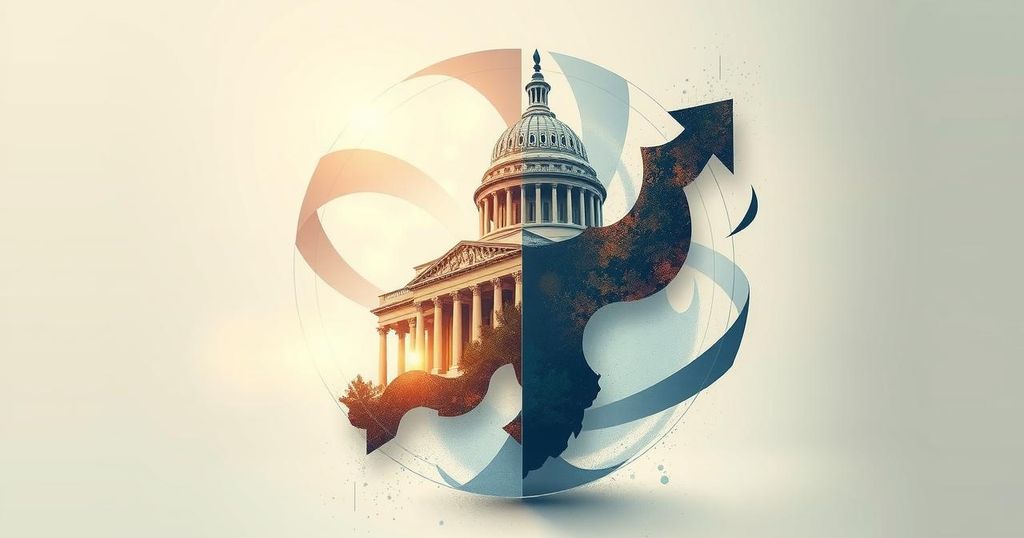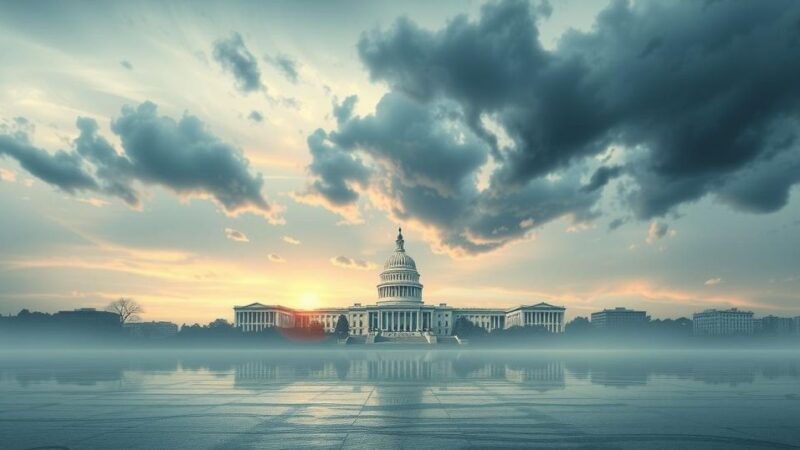In the initial days of his presidency, Donald Trump has enacted rapid policy changes, signaling territorial ambitions and an aggressive restructuring of government agencies. With notable nominations moving forward easily, he is supported by allies like Elon Musk and JD Vance, while emphasizing retribution against his political adversaries. His reliance on executive orders has prompted discussions regarding the impact on democracy and governance.
In his first days in office, President Donald Trump has rapidly undertaken transformative actions, pushing against the established democratic frameworks of the United States. His agenda includes reimagining foreign territories, challenging established laws, and restructuring government agencies. With significant proposals affecting regions like Greenland and Gaza, he operates under a strategy of bold territorial expansion reminiscent of 19th century America, stirring both national and international concerns.
Amidst a backdrop of austerity measures aimed at dismantling the “deep state,” Trump’s appointments have proceeded with surprising ease, as evidenced by the swift confirmation of controversial figures such as Tulsi Gabbard and Robert F. Kennedy Jr. This streamlined approach is due, in part, to a compliant Republican Congress, which largely aligns with Trump’s objectives for 2024, minimizing opposition within their ranks.
Elon Musk and Vice President JD Vance have emerged as instrumental figures in Trump’s inner circle. Unlike past administrations, where followers restrained the President’s impulses, Musk and Vance are positioned to facilitate policy implementations and symbolize a newfound cooperative dynamic, advocating for an agenda that pushes for reduced government size and increased efficiency.
Retribution plays a notable role in Trump’s policy framework from the outset. He highlights a desire to rectify perceived injustices, particularly surrounding the January 6th Capitol incident, which has led to a dismissive approach towards ongoing investigations. His actions have notably included pardons for insurrectionists and firings of key legal personnel involved in investigations against him, raising ethical and legal questions.
With executive orders at his disposal, Trump has enacted significant policy changes, totaling 53 orders within a short period. These directives range from military policy changes to international agreements and environmental regulations, reflecting his self-paced governance method. His aggressive use of executive power raises alarms about the balance of power and the role of federal oversight in the democratic process.
The article examines the first few weeks of President Trump’s second presidency, noting his aggressive approach to policy-making and governance. It emphasizes his attempts to redefine America’s role on the global stage while simultaneously reshaping domestic institutions and laws. This analysis highlights the implications of his actions for the future of U.S. democracy and underscores the potential challenges he may face from both domestic opposition and international stakeholders.
President Trump’s early actions in office reveal a commitment to an expansive and at times controversial agenda, focusing on both territorial claims and significant domestic policy changes through executive powers. His strategies regarding retribution and dismantling bureaucratic entities signal a departure from traditional governance. As he forges ahead, the implications of his actions will undoubtedly invoke legal challenges and public scrutiny, shaping the landscape of American politics in the near future.
Original Source: www.usatoday.com






